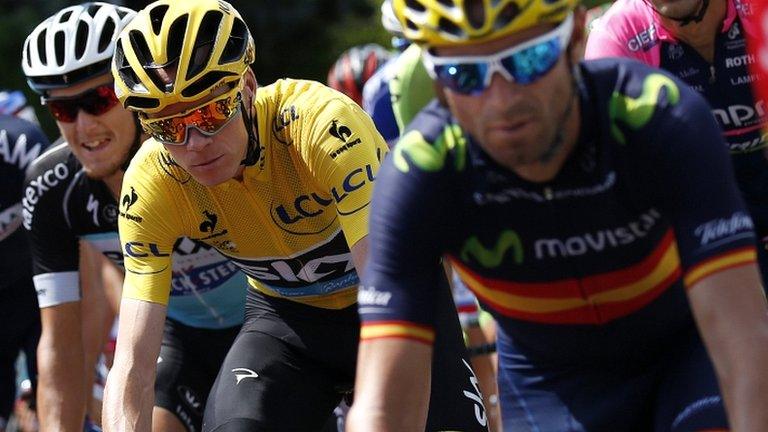More than one in 10 athletes could be doping - Wada chief
- Published
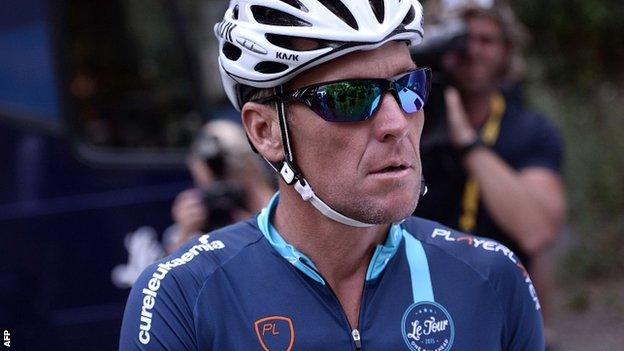
Lance Armstrong was stripped of seven Tour de France titles after admitting doping
More than 10% of elite athletes could be using performance-enhancing drugs, says World Anti-Doping Agency director general David Howman.
But he warns that the number of children doping to reach the elite level is Wada's "biggest concern".
Howman said sport's increasing profitability had led to young athletes becoming more "vulnerable".
Drug testing is limited in non-elite events, and Howman admits teenagers are "under the radar" of doping agencies.
He also said doping could become a criminal offence in five years.
Howman said Wada's estimation of the level of cheating varied between sports.
"We have some guestimates based on some research undertaken over the last years," he told BBC's Hardtalk.
"It's far more than we would wish it to be - over 10%. That is of concern because those being caught by the system is far lower than that. Not in all sports, in some sports.
Famous drug cheats in sport
"The area of most concern for us is the level of young athletes who have not broken through into the elite who are trying to get that breakthrough and are susceptible to taking drugs because that's a shortcut.
"Not only are they susceptible to taking drugs, they are being encouraged to do so by any one of a number of people that surround them - coaches, trainers, even parents - because it's way to make a lot of money."
Nigerian weightlifter Chika Amalaha, 16, was stripped of her gold medal after failing a drugs test at last year's Commonwealth Games.
Doubts about cycling
Former Wada president Dick Pound has previously said that four out of five cheats are not being caught.
And Howman said he was concerned there might still be riders doping at this year's Tour de France after former winner Lance Armstrong was stripped of seven titles following his admission he took performance-enhancing drugs.
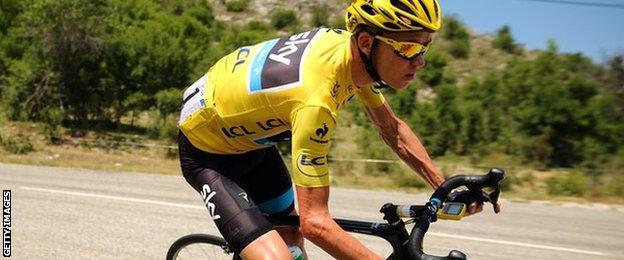
Britain's Chris Froome has denied ever taking performance-enhancing drugs
Leader Chris Froome has been questioned about his performance during this year's race but the Team Sky rider has always denied doping.
Howman said the numbers of riders doping had fallen "majorly" since Armstrong won Tours from 1999 to 2005, adding: "I have great respect for the way in which the UCI [world cycling's governing body] are now running their anti-doping programme."
The wider fight against doping
Regarding other sports, Howman said: "Significant ground has been made to make sure the clean athlete achieves a level playing field."
American sprinter Justin Gatlin is due to compete in next month's World Championships following two previous doping bans.
Asked whether he knew some of the world's top athletes were cheats, Howman said: "Not to the same level as the information we had on Lance Armstrong but certainly we have information that is being investigated about a number of athletes around the world."
Howman, who is to step down in 2016 after 12 years at Wada, admitted his organisation's effectiveness was limited by a lack of resources.
"When I started at Wada, Wayne Rooney was being paid $4m a year by Manchester United," Howman added. "He's now being paid something like $30m.
"We were getting $20m when he first started, we're now getting $30m. Sport is saying to us [your money] should be increased but they are not doing it in the same proportion.
"That probably is not a good way of addressing the issue."
- Published1 August 2014
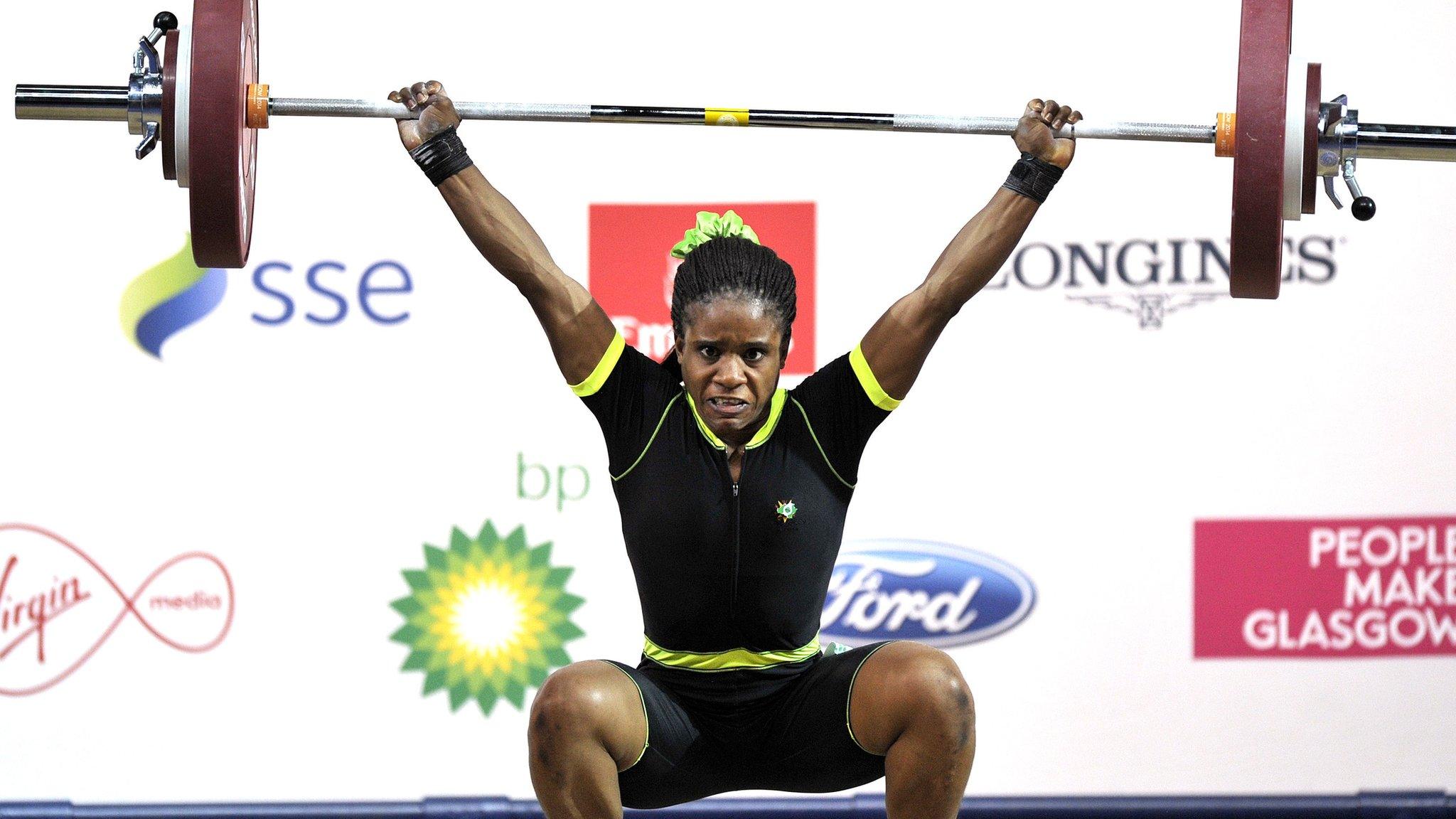
- Published7 October 2014
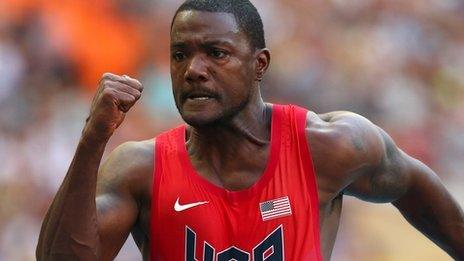
- Published23 July 2015
